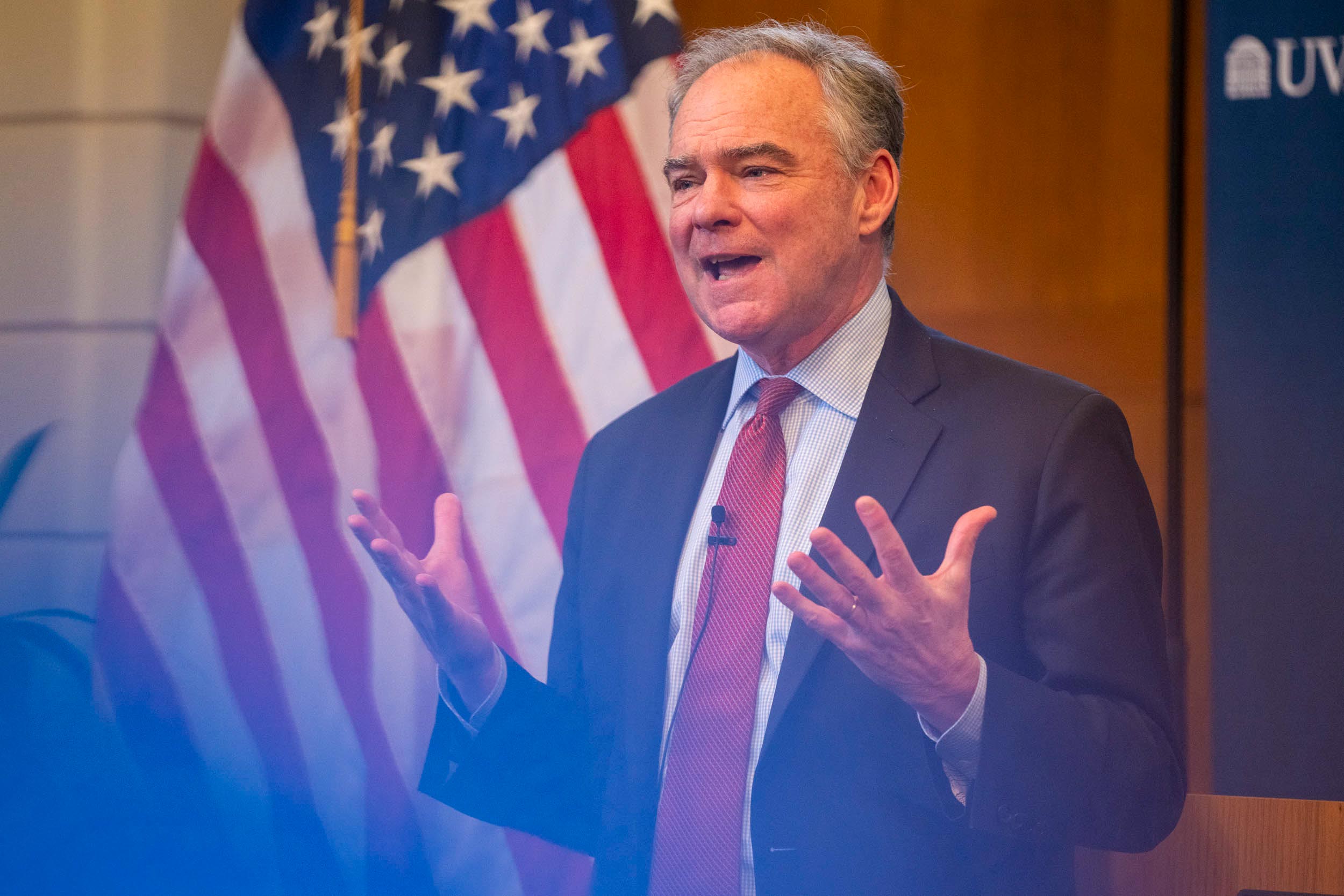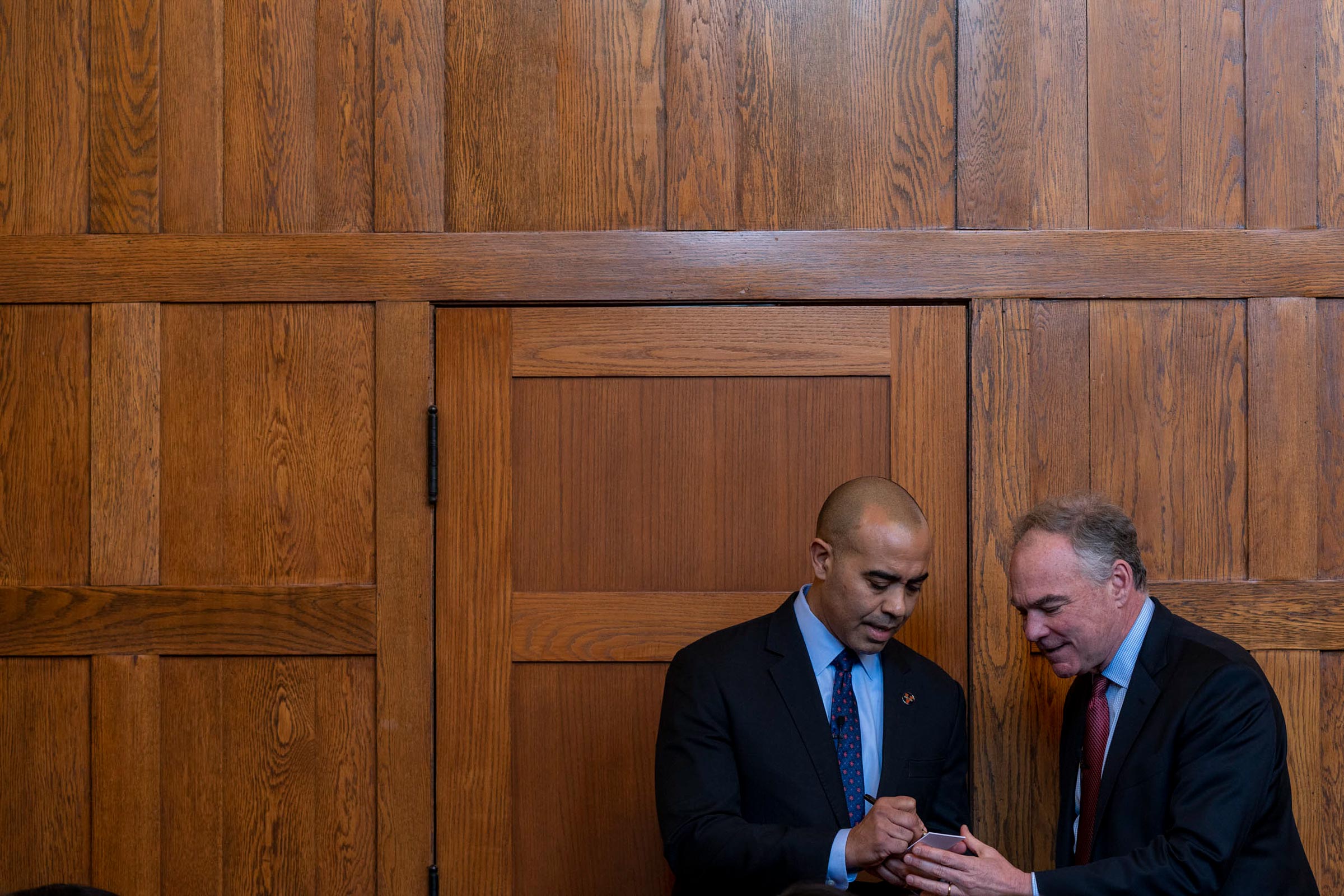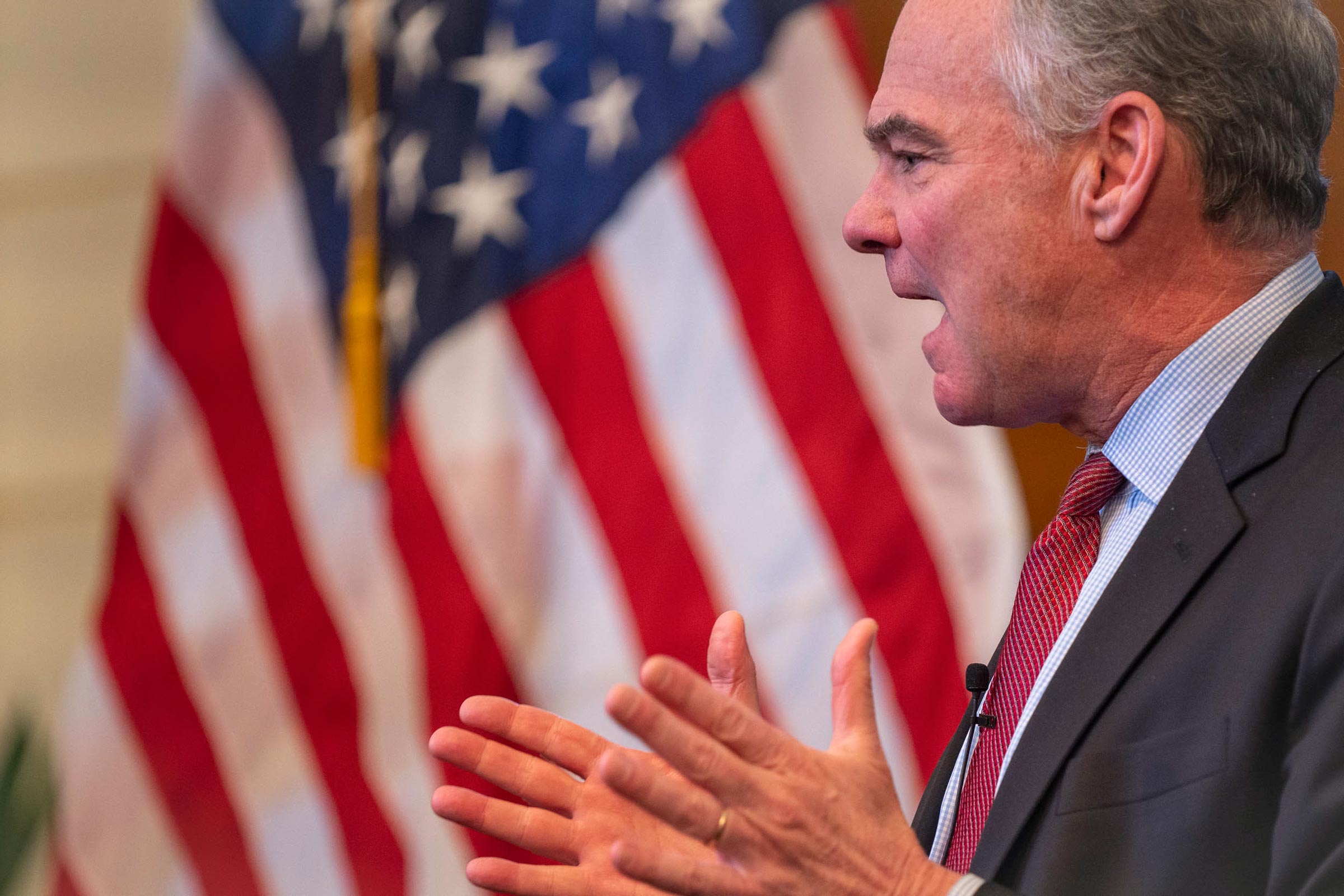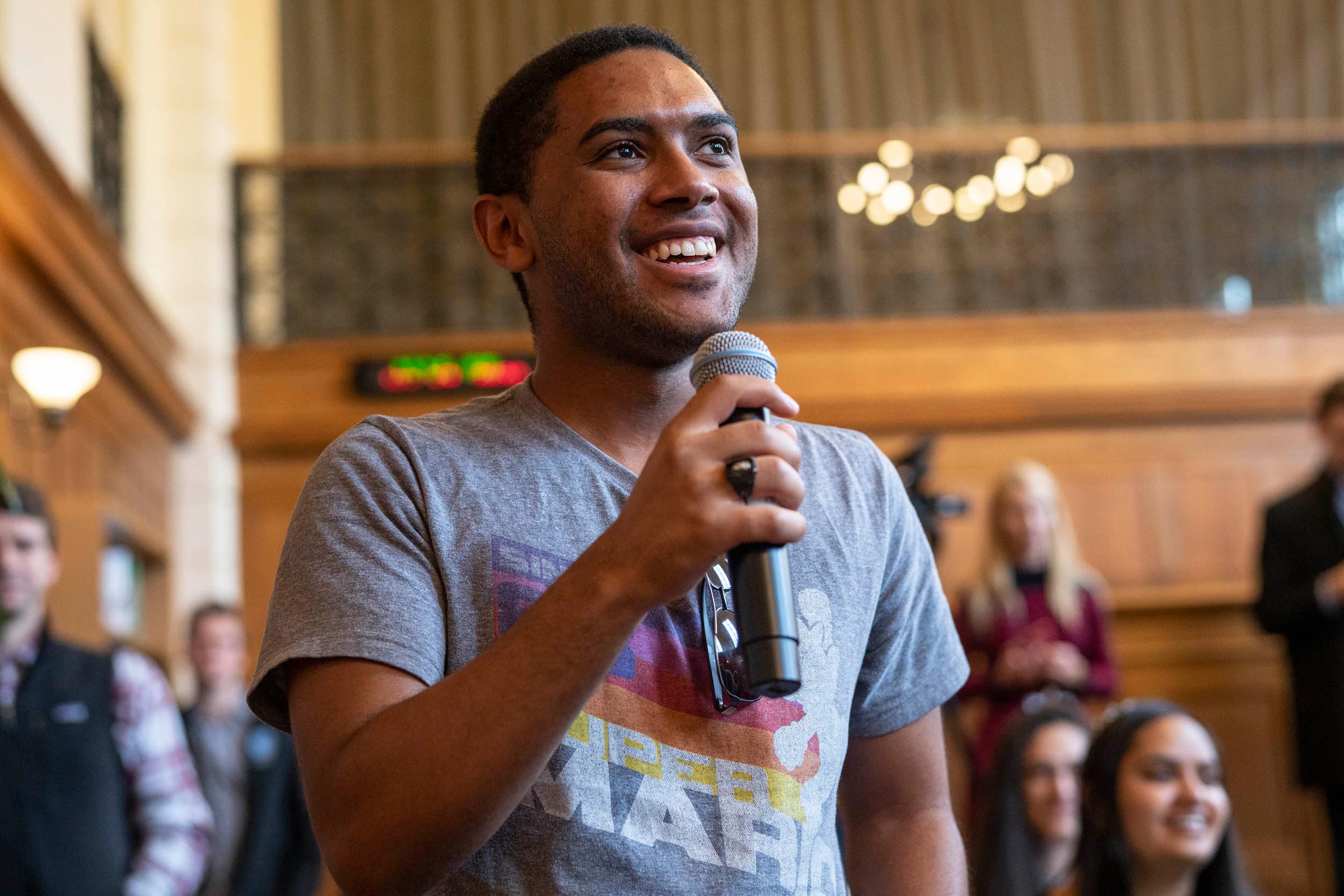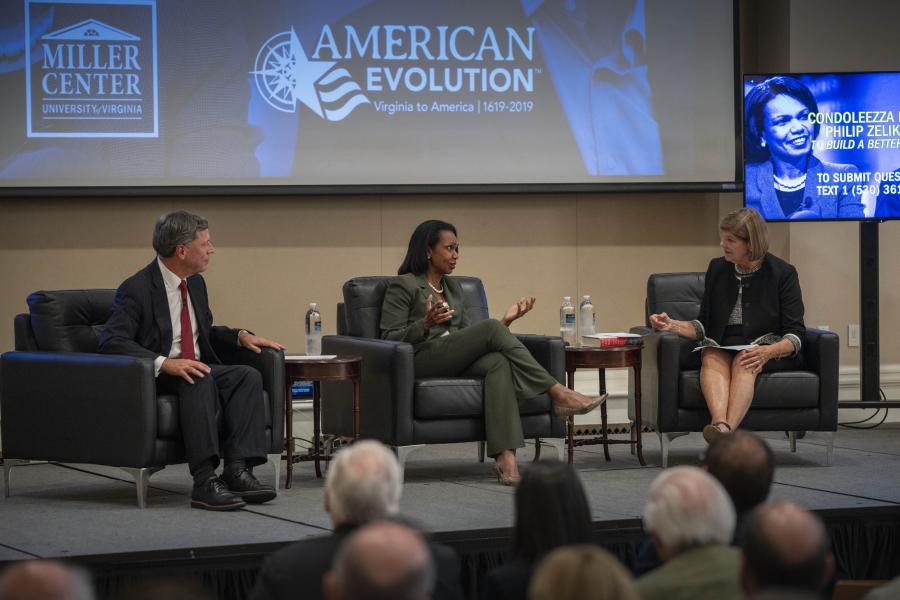On Friday afternoon, U.S. Sen. Tim Kaine spoke at the University of Virginia regarding the war powers resolution he is currently championing in the Senate – and he asked for some advice.
The Virginia Democrat, speaking to a packed house of students and community members at UVA’s Frank Batten School of Leadership and Public Policy, said he has bipartisan support for the legislation, which would require the president to seek congressional approval before a military-led strike such as the one that killed Iranian Gen. Qasem Soleimani in Iraq this month.
Several Republican senators have joined Democrats in supporting Kaine’s legislation, which is co-sponsored by Republican Sens. Rand Paul of Kentucky, Mike Lee of Utah, Todd Young of Indiana and Susan Collins of Maine. It could come to a vote as early as next week, depending on impeachment trial proceedings in the Senate.
Before that, though, Kaine wanted to take time out to talk to students.
“Any time I am in the middle of a discussion about matters of war and peace in Congress, I always come out and talk to young people,” he said, noting that he visited ROTC students at Virginia State University as tensions escalated in Syria, and visited Old Dominion University amid worries about ISIS, among other events. Students from the three branches of UVA’s ROTC program were in the audience on Friday.
“I find that you have the most stake in this,” Kaine said. “Your questions will challenge me to think in a better way about these things. That is why I wanted to come today.”
He got what he was looking for. Kaine, who also went to lunch with Batten students earlier in the day, spent almost an hour answering students’ questions and sharing his views on policy issues they raised.
